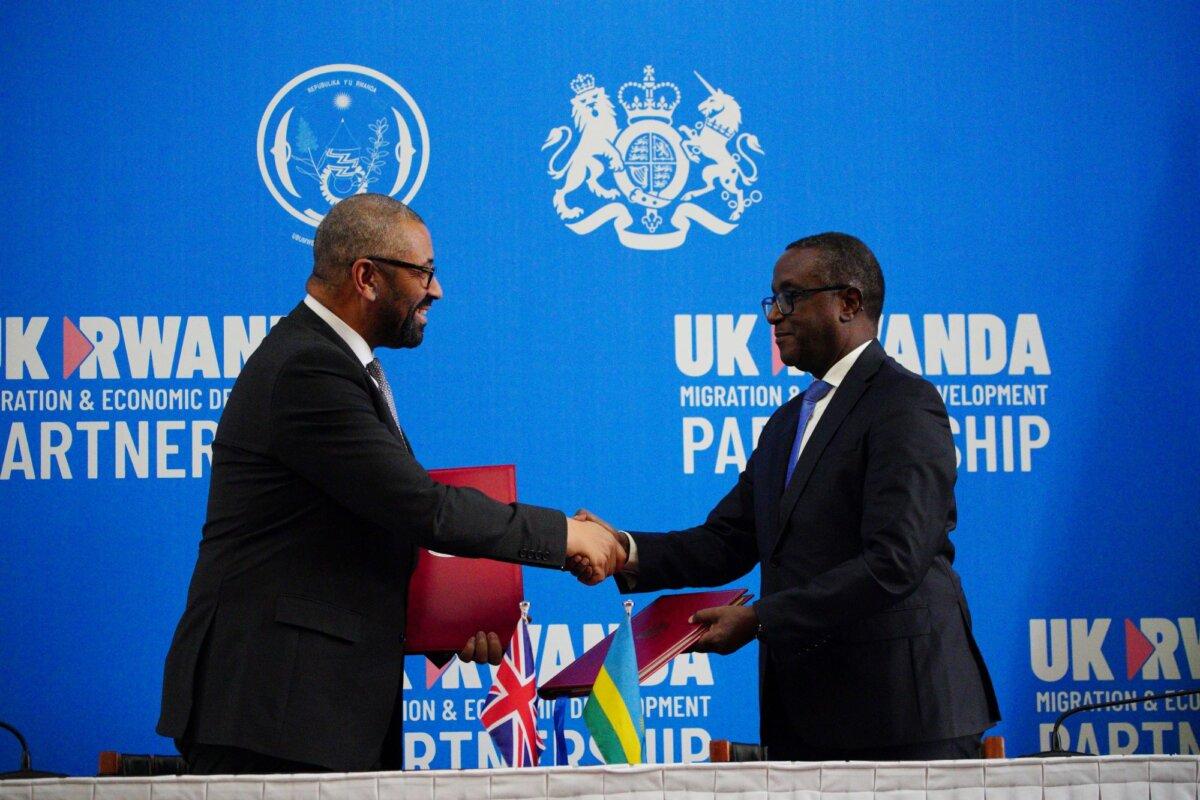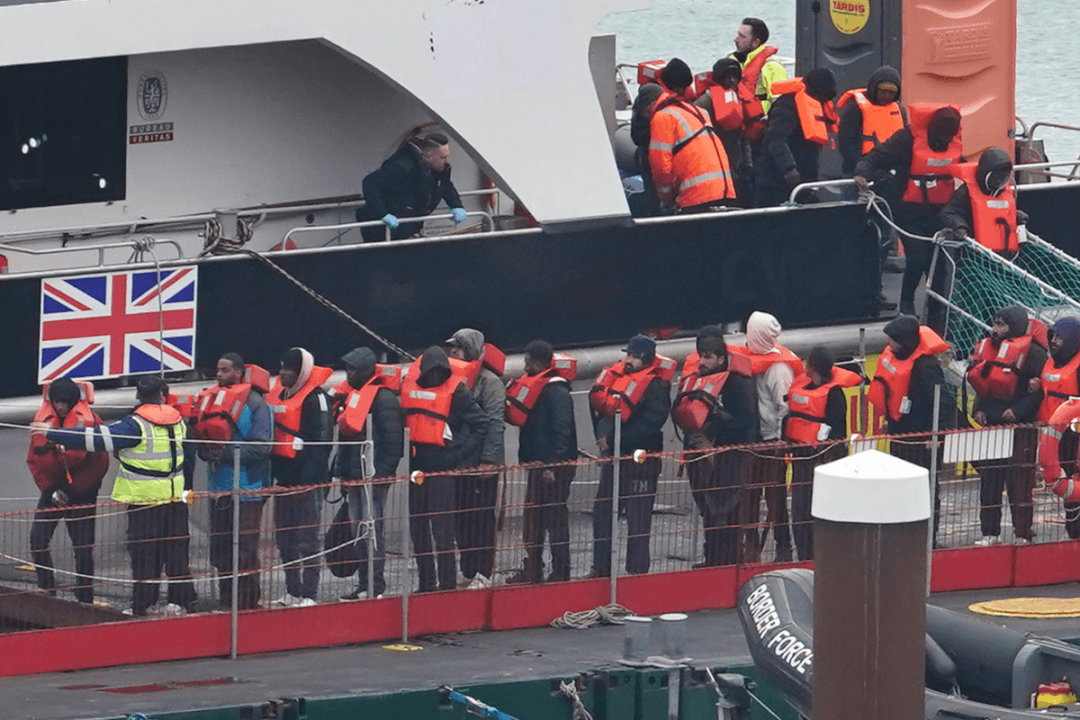Downing Street has called on peers to “work with the government” as it braces for a fresh battle over plans to send illegal immigrants to Rwanda.
The government secured a win on Monday as MPs threw out all 10 amendments that peers had attached to the Safety of Rwanda (Asylum and Immigration) Bill, but if peers insist on making further changes on Wednesday, the passage of the bill could be delayed until after the Easter break, diminishing Prime Minister Rishi Sunak’s hope to get a flight off the ground in the spring.
Mr. Sunak’s official spokesman told reporters on Tuesday that the government believes “not acting ... is not an option and it certainly wouldn’t be a compassionate route.”
“We want to end the business of people smuggling and ensure that vulnerable people are not lured into making the perilous journey across the [English] Channel, so there’s an opportunity for the Lords to work with the government this week and pass this bill,” he said.
But the spokesman rejected the claim that the House of Lords was “out of touch,” saying he would not characterise peers in that way.
The Rwanda bill is designed to underpin the government’s policy to relocate illegal immigrants to the east African country and block most routes of legal challenges by having Parliament declare that Rwanda is a safe country in general.
Earlier this month, peers significantly watered down the bill with 10 amendments, some of which were passed by unusually large margins of around 100 votes.
Among the proposed changes, peers sought to reinsert the power for courts to consider the safety of Rwanda, oblige the UK to maintain “full compliance with domestic and international law,” state that Rwanda will only be considered safe if and when its treaty with the UK is “fully implemented and adhered to in practice,” and prevent the relocation of people who had previously supported British military overseas or been a modern slavery or human trafficking victim.
Beginning the so-called ping-pong stage, in which the two houses of Parliament make final tweaks to the bill, MPs overturned all of the Lords’ proposals on Monday, by margins of between 57 and 78 votes.
If peers insist on reinserting their proposals, the bill will go back and forth between the Commons and the Lords for a second round, and potentially a third round, until the two houses agree.
Debate
Opening the debate on Monday, Home Office minister Michael Tomlinson stated that the government disagrees with all 10 of the Lords’ amendments.He said he doesn’t accept that the bill undermines the rule of law or “requires any act or omission which conflicts with our international obligations.”
The minister defended Rwanda’s record of integrating asylum seekers and refugees, and said the government has “published evidence” in support of Rwanda being a safe third country.
He also said the Lords’ amendments “would open the door to lengthy legal challenges which will delay removal.”

Conservative MP Sir William Cash said one of the Lords’ amendments, which is designed to ensure the bill complies with international and domestic law, is a “serious and dangerous” clause owing to its impact on “parliamentary sovereignty.”
“The problem here is that this is actually one of the most serious and dangerous clauses that I have seen in recent statutory history. It is actually contradicting one of the most fundamental principles of our constitutional law,” he said.
“Parliamentary sovereignty means that the supremacy of Parliament can override international law and should do so. The ‘should do so’ is equally important. Indeed I would go further and say that in our courts that sovereignty with those clear and unambiguous words trumps international law,” he said.
Labour, which has called the Rwanda policy “gimmicks,” backed all 10 Lords amendments in the Commons.
Shadow Home Office minister Stephen Kinnock said the amendments each made the bill “marginally less absurd” and “would serve only to put in statute what ministers have actually promised from that despatch box.”
“Not one of these amendments is designed to prevent the departure of flights to Rwanda, as the prime minister has repeatedly and wrongly implied that they will,” he said.
Mr. Kinnock also disputed criticism of the House of Lords for their amendments to the bill, telling the Commons, “In so doing they were fulfilling their constitutional, democratic, and patriotic duty, by scrutinising and seeking to amend this bill, just as they would any other piece of legislation that comes before them.”
SNP home affairs spokeswoman Alison Thewliss called the bill “a circus” and “a deflection from a broken Home Office that can’t even get the basics right.”
She accused the Westminster parties of creating a “hostile environment” and said the bill is “not Scotland’s values.”
Speaking to ITV on Monday ahead of the vote in Parliament, the prime minister said he’s still “committed” to the aim of getting the first deportation flight off the ground in the spring.
Mr. Sunak insisted the UK needs the Rwanda scheme as a deterrent, saying it’s “the only way to properly solve the issue of illegal migration.”







